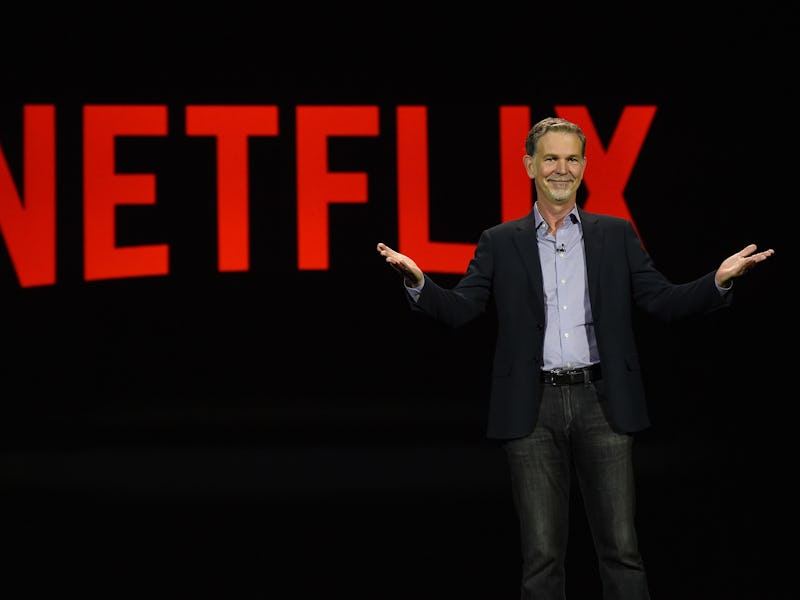Netflix Leaving Battle for Net Neutrality Shows Why We Need It
"We're big enough to get the deals we want."

At Recode’s Code Conference on Wednesday, Netflix’s CEO Reed Hastings seemed to put the final nail in the coffin of his company’s support for net neutrality, which is threatened by the Republican-dominated Federal Communications Commission’s (FCC) deregulation proposal. Netflix’s withdrawal from the fight for a free internet — of which it used to be a stalwart participant — is disappointing but not surprising, and it’s a reminder of why we need net neutrality: to protect the powerless, not the powerful.
Before Netflix was the United States’ most popular streaming platform, it seemed to care deeply about the free internet. In 2012, when it was much smaller and more vulnerable (having only recently separated its streaming and DVD renting services), it took a vocal pro-net neutrality stance. When Comcast allowed customers to stream its own TV service through an Xbox without counting it toward data limits, Hastings bluntly critiqued this, saying, “In what way is this neutral?”
Netflix has stood up for net neutrality many times since then, too. But more importantly, the company has done so less and less as it’s gained subscribers and stock market value.
And, now, here we are, at the apparent end of the line. “It’s not our primary battle at this point,” Hastings told Recode’s Peter Kafka. “We’re big enough to get the deals we want.”
Reed Hastings in 2016
Hastings is openly admitting that Netflix no longer has a vested interest in saving net neutrality because it’s the leader of the streaming market. This is true, of course, but Hasting’s decision not to fight the FCC’s actions is wildly irresponsible. Deregulation will help Netflix maintain its market dominance, so his new position will probably benefit the company in the short term, but less so in the long term.
Net neutrality helps foster market growth because it ensures fair competition, which holds companies to higher standards and promotes innovation. Netflix under net neutrality is forced to be as smart and creative as possible to appeal to consumers.
Plus, Netflix is clearly on the wrong side of history with this new stance, since net neutrality is popular across partisan lines (except within the FCC), and the commission’s proposal will probably fail in court anyway. What if Netflix users revolt because of this nonsense? In 2017, customers are proving themselves totally up for boycotting as a means of applying political pressure. What if Congress finally breaks up tech oligarchs like Netflix with revamped antitrust laws, for which progressive momentum is building? Most of all, Hastings, what about sheer morality, and the protection for consumers and small businesses about which you once acted like you cared?
But moral obligations don’t mean much to the beneficiary of an unfair system. If net neutrality wanes, Netflix would profit off the increasingly difficult entry barriers that could arise for new streaming services.
Hastings has exposed his initial support of net neutrality as having been entirely selfish. And that shows why we desperately need these protections, because when they’re able, companies will sometimes choose to harm consumers in the name of self-interest. FCC Chairman Ajit Pai’s notion that internet service providers would voluntarily follow net neutrality principles without a legal requirement is ridiculous, and Hastings’s attitude reversal proves it.
“We had to carry the water when we were growing up and we were small,” Hastings said. “[Now] other companies have to be on that leading edge.” Of course, when Netflix was fighting the first time around, the momentum was in favor of net neutrality, assisted by equal partisan representation on the FCC and a Democratic leader. Yes, today Netflix is powerful; it should use that power.
But no, Hastings is fine with shedding the burden. In his mind, it’s not his company’s problem anymore.